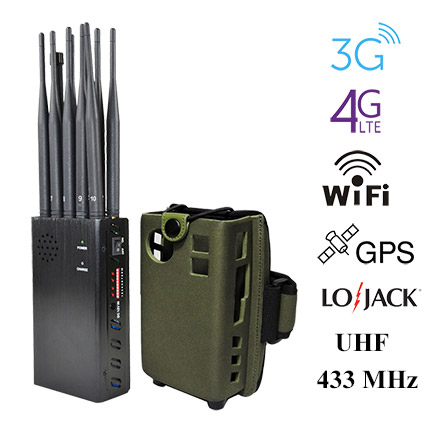In 2013, the Federal Communications Commission fined individuals nearly $32,000 for using equipment designed to evade fleet management tracking systems on its company vehicles. The device in question: GPS jammer.
After FAA and NJ Port Authority officials struggled for more than two years to determine the cause of the new Ground Augmentation System (GBAS), the incident occurred at Newark Airport, which was mainly used to enhance the aircraft’s takeoff and landing system. malfunction. The reasons for these failures seem uncertain.
In the end, with the help of the FCC and with special equipment, they were finally able to find out the cause of these inexplicable problems: an on-site contractor was using a GPS jammer, which not only blocked his fleet tracking system. Company, but he also destroyed GBAS in the process.
GPS jammers are usually small devices that can be plugged into the lighter port of a vehicle and emit radio signals that are superior to or suppress weak signals (such as GPS or other signals). Although gps blocker are illegal in the United States, they are easily available online and are becoming more common as the use of fleet management tracking systems increases. At first glance, these devices may seem relatively harmless, but they are likely to cause damage.
The jammer at Newark Airport is a good example. A device for only $30 can dismantle the most advanced and highly complex landing system at one of the busiest airports in the world. To make matters worse, the user of the device did not even try to do so. Imagine what a person with DID intends to do to harm?

Remember, GPS is not only used for navigation. It is also the main source of synchronization and synchronization in key infrastructures (such as finance, communications, industry, power grids, etc.). In fact, this infrastructure relies so much on GPS for timing, so much so that in recent years, the Department of Homeland Security has launched an initiative to raise awareness of threats and find solutions to protect these important systems.
In timing applications, interference can destroy GPS signals, causing the underlying system to lose the ability to synchronize its internal clock, and then lose the ability to synchronize with the rest of the network. Since many critical infrastructure areas require the synchronization of the entire network to reach a millionth of a second, even short-term GPS interruptions can have a significant impact. Worse, when an outage occurs, there is usually no indication that it is an interference. No longer receiving GPS signals at all.
To make matters worse, the data centers where many of the servers with these networks are located are in warehouse areas (frequent truck traffic) or near major highways. These are the two places most likely to encounter GPS interference. In fact, at Orolia, we know from experience and specific examples that this not only happens, but it is relatively common.
With these threats in mind, Oriolia has developed solutions to protect our customers. In the second half of last year, we announced the release of BroadShield, which uses sophisticated algorithms to query the RF signals consumed by GPS receivers to detect abnormal situations such as interference or counterfeiting. Recently, we released a new anti-jamming (AJ) antenna.
The new AJ antenna attenuates or blocks RF signals from near the horizon. The actual signal comes from a satellite near the zenith. The false interference usually comes from the horizon.
A good way to visualize how it works is to stretch your arms to each side that is parallel to the ground, and then lift it up at a 30-degree angle to the ground. If you are a GPS antenna on the roof of a data center, any RF signals from under the armpits will be blocked. Since the most common source of interference comes from people trying to evade vehicles, trucks, or fleet management tracking systems on the ground, AJ antennas are a very effective way to protect critical networks. .
The AJ antenna also replaces the traditional GPS antenna, making it easier to deploy. It does not require any special power supply, installation or placement of standard antennas. We had the opportunity to test with some customers whose GPS was interrupted due to interference and achieved remarkable results. Next time we will share them in the John Fischer blog. Stay tuned for more.